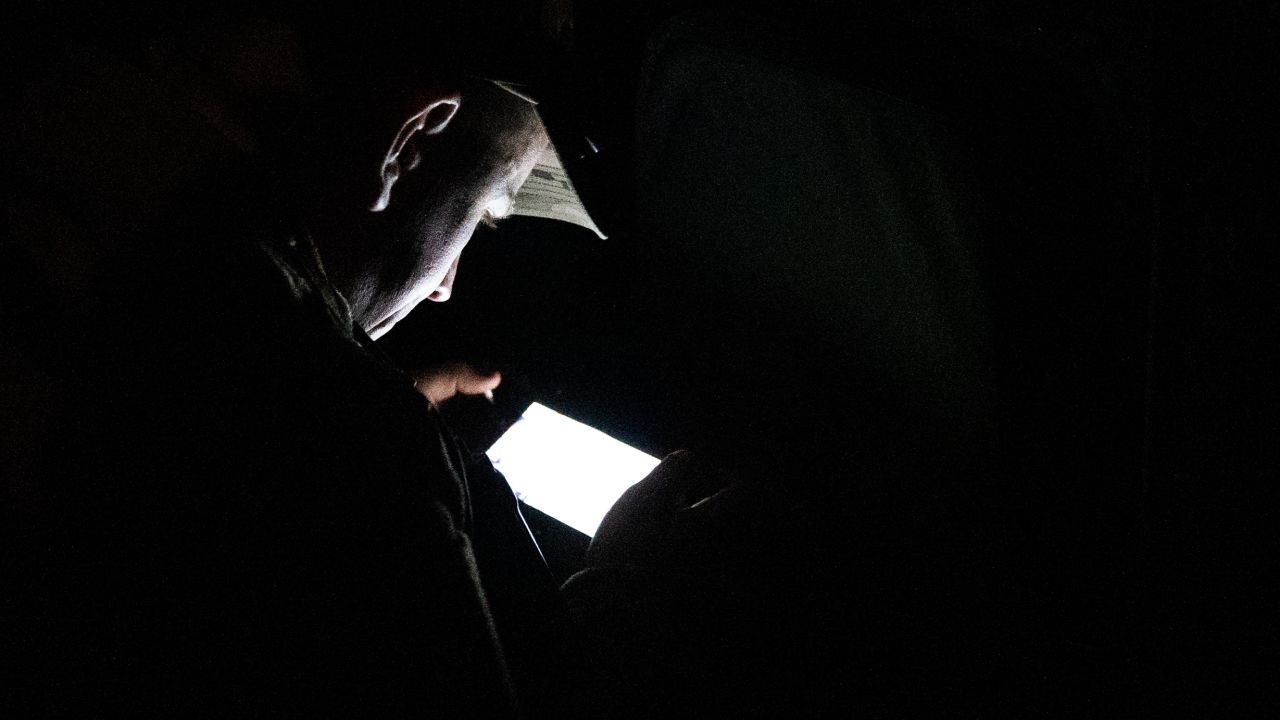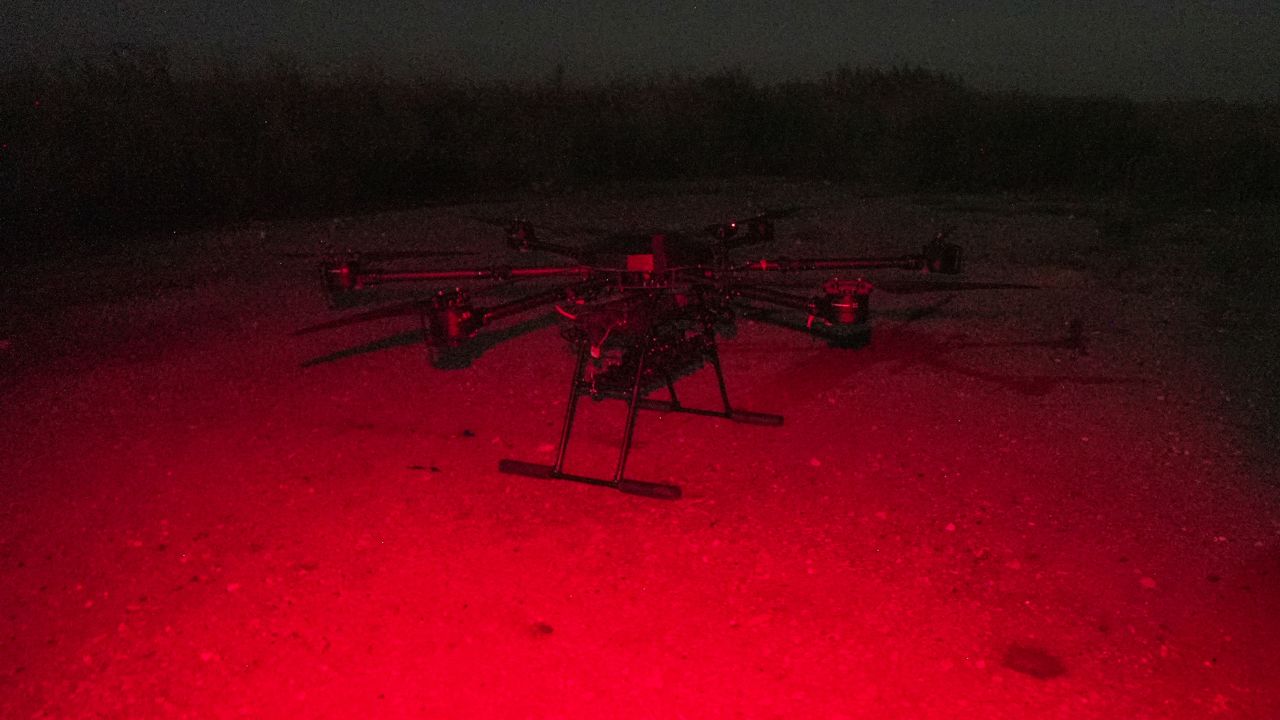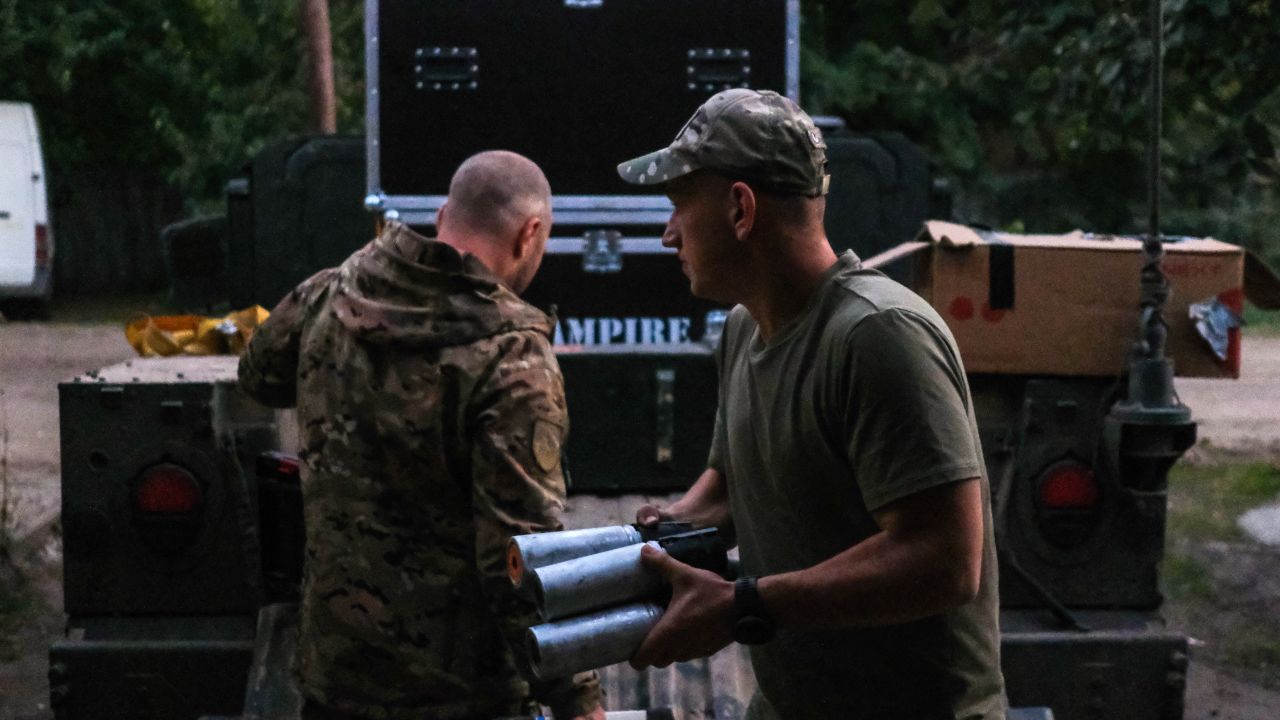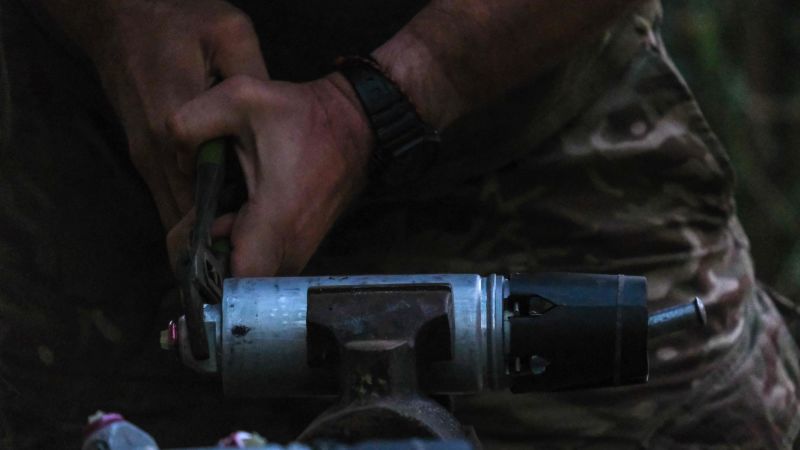Eastern Ukraine
CNN
—
Two Ukrainian soldiers huddle around a drone controller in darkness, their faces illuminated only by its screen.
“Oh, something is burning,” one says. They’ve just dropped a bomb on a Russian target.
The night-time assault is part of a coordinated Ukrainian offensive push near the beleaguered eastern Ukrainian city of Bakhmut, to which CNN obtained exclusive access.
“We will be hitting their first line and our guys will be advancing on the enemy,” says one of the drone pilots, who goes by his call sign “Groove.”
Ukrainian ground troops are equipped with Western night-vision equipment and have an advantage in night-time operations, but Kyiv’s ground attack aircraft are not suited for the dark, so this drone unit nicknamed “Code 9.2” is stepping up.
“The drones see in the night like in daylight,” ‘Groove explains. “We see the infantry, we hit the vehicles, cannons, everything we need to destroy.”
They are using Ukrainian-made ‘Vampire’ unmanned aerial vehicles, a hexacopter procured by the government in Kyiv, part of an initiative led by the Ministry for Digital Transformation to supply Ukrainian forces with technology on the battlefield.
“Each drone is equipped with a thermal imager, so it can operate effectively at night. They can carry up to 15 kilograms [33 pounds] of payload,” Ukraine’s Deputy Prime Minister and Minister of Digital Transformation, Mykhailo Fedorov said in a Telegram video last August, as he announced 270 of these machines would be sent to the front lines.
“The military will use them to destroy both armored cars and tanks, as well as enemy defense structures, fortifications, or ammunition depots.”
That’s what Groove and his unit have been doing.
Videos recorded using the night-vision cameras on their drones and given to CNN show the drones dropping bombs on several Russian armored vehicles, including a recent attack which destroyed a modern Russian T-90 tank – one of the newer and more advanced models Russia is fielding in Ukraine.
“Sometimes there are a lot of them,” Groove says, searching the area with his drone, trying to scope out Russian forces. They chase a few Russian vehicles, dropping bombs on them as they go.
“At the moment we don’t see many. There was some vehicle there but we didn’t hit it,” he adds.

As the drone attack picks up pace, other units join the battlefield: powerful artillery makes itself heard, showering the moonlit Russian positions with US-donated cluster munitions at a fast pace.
Grad multiple launch rocket systems fill the sky with their rapid hissing projectiles, mortar units join in, zeroing in on Moscow’s armies with the help of flares, and infantry fighting vehicles race to the front to storm Russian lines.
It’s a comprehensive assault and, at their headquarters, Code 9.2 commander call sign ‘Flint’ says this operation has been weeks in the making.
“We’ve been setting it up for more than a month” he says, as his men prepare the ammunition they will be dropping on Russian positions.
“It’s a combined assault,” he adds, explaining the push south of Bakhmut is designed to build up on recent gains in the area, where Ukraine was able to regain important territory from Russian control.

Kyiv has concentrated a large portion of the Western equipment it received in the South where Ukrainian forces have been advancing along two axes: from Orikhiv towards Melitopol and from Velyka Novosilka towards Berdiansk.
German-made Leopard 2 tanks, American Bradley infantry fighting vehicles among others were sent to the area to support Ukrainian forces as they stormed Russian positions. The ultimate goal is to reach the Black Sea and cut off Russia’s supply route to Crimea. Gains so far have been slow and modest, with Ukraine retaking only a few small villages in the South.

Much less talked about have been operations in the Eastern part of the country, where Kyiv’s forces have slowly but surely retaken dozens of square kilometers, since Russia’s brutal assault on Bakhmut last winter.
“We are breaking through their line of defense here and we are hitting them well,” Groove says. He says the Russian mercenary group Wagner, responsible for much of Russia’s gains during the winter, has returned to the area.
“Yes, Wagner is here too,” he says. “They came back, they swiftly changed their commanders and returned here.”
Groove believes that the group’s presence is in part intended to compensate for personnel shortages on the Russian side. “[Russia] gathered troops from surrounding areas and brought them here,” he says. “They don’t have much personnel left here.”
Nevertheless, it is a slow grind – a war of attrition – and with less of the advanced Western equipment than their countrymen on the Southern frontline, Ukrainian forces here are forced to rely more on brains than brawn.
“We change tactics constantly,” commander ‘Flint’ explains. “It’s like boxing. We go for the body and then switch for the head.”

